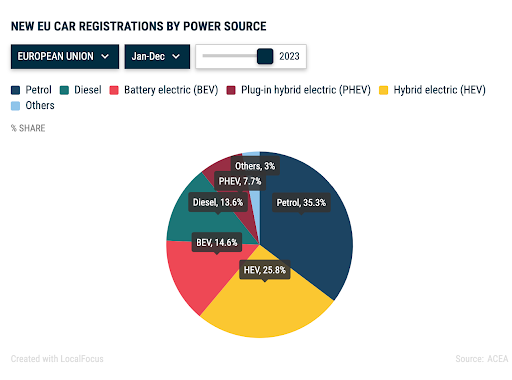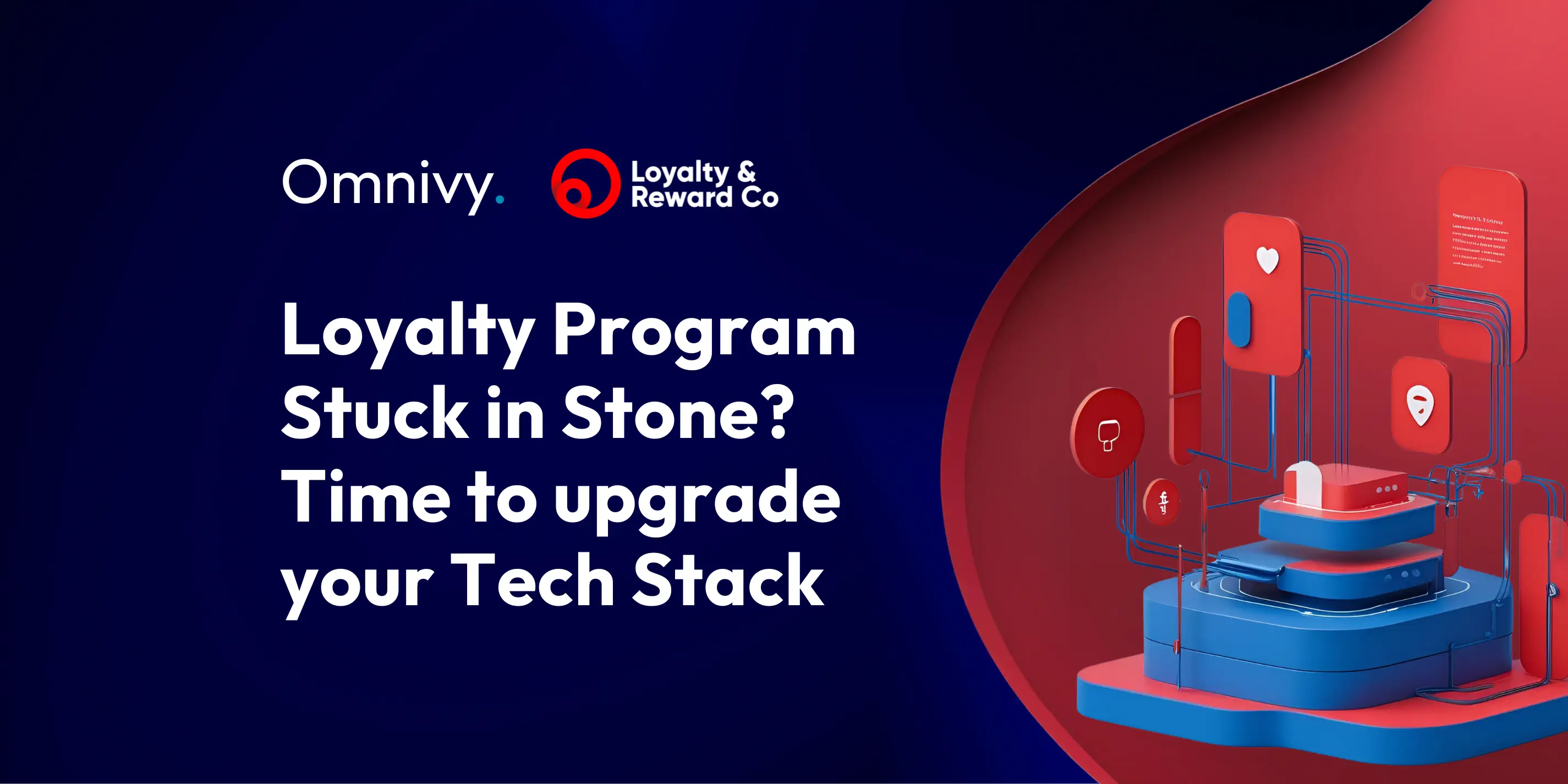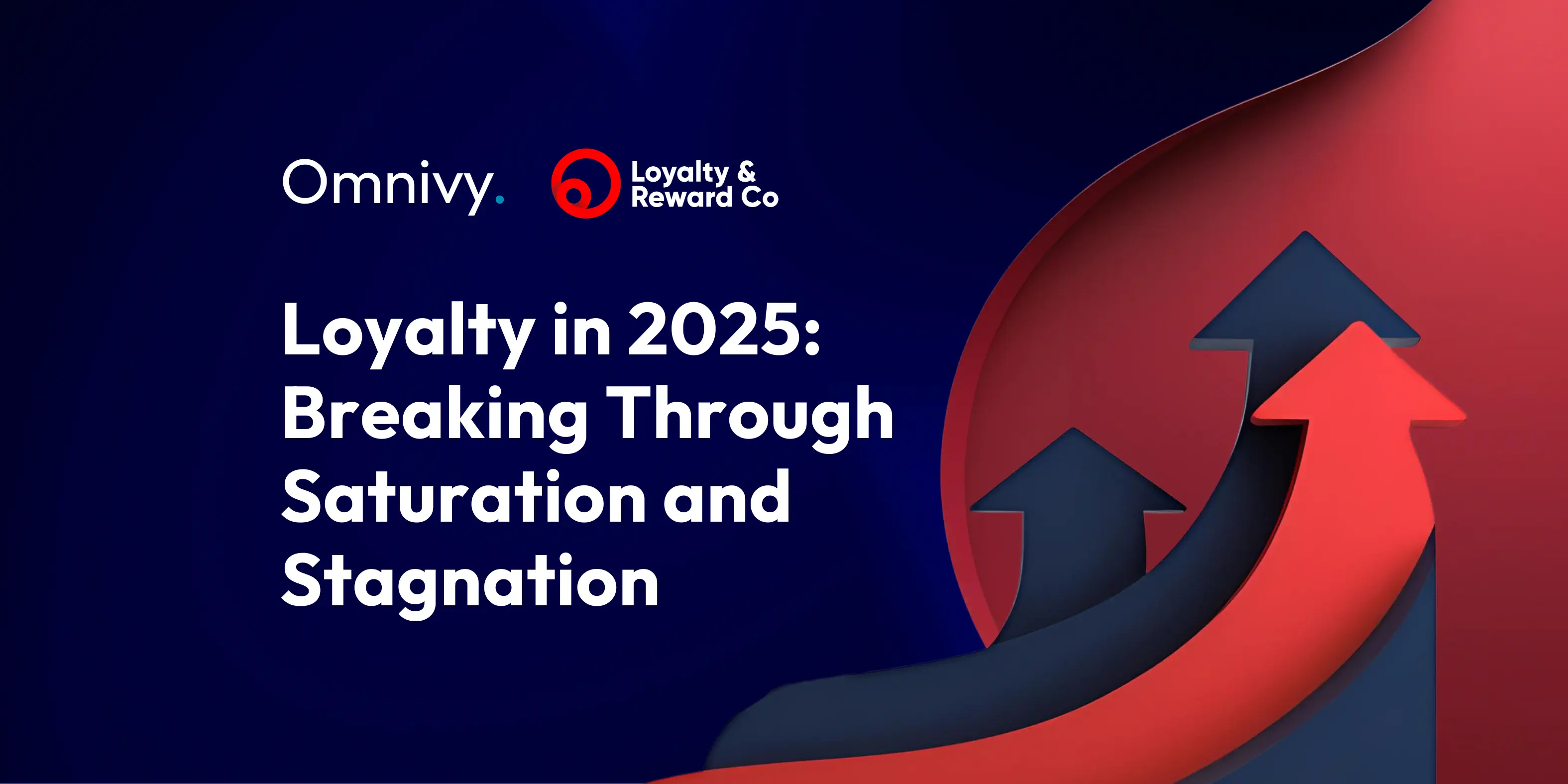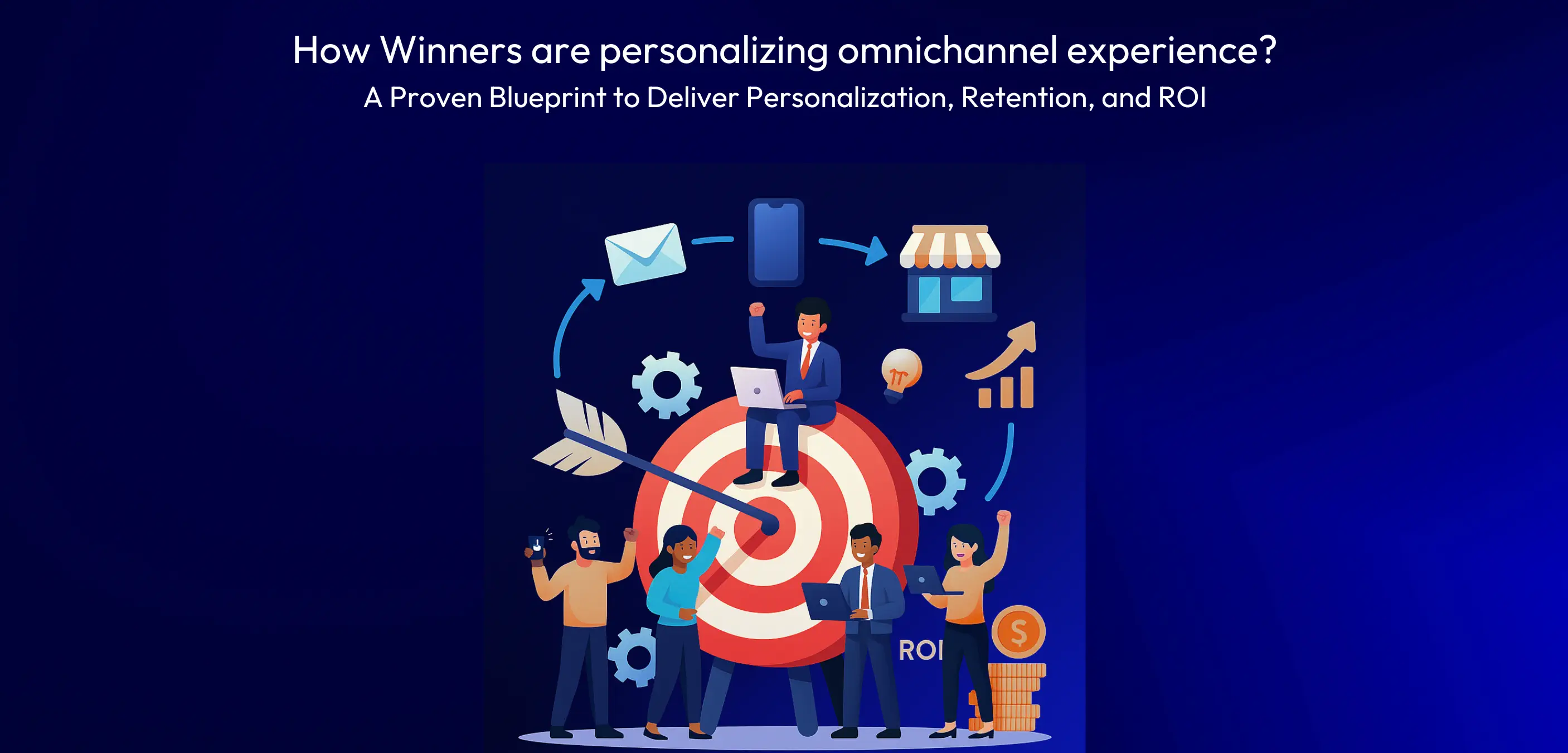The world around us is speeding and oil and gas industry is at a crossroads. On the one hand, there is growing ecological awareness and the expansion of electromobility, and on the other hand, there are traditional business models based on gasoline sales. How can loyalty programs find their way in this evolving landscape?
The electric revolution - it's already happening
Even today, we are seeing a significant increase in the number of electric car registrations. According to data published by the European Automobile Manufacturers' Association (ACEA), in 2023 the number of registered electric vehicles in Europe accounted for more than 14% of all newly registered cars, making it the 3rd category of cars in terms of power source.

In addition, EU law will require all new cars and vans sold to have zero CO2 emissions from 2035 and 55% lower CO2 emissions from 2030 versus 2021 levels.
Gas and oil companies are facing this global pressure, and they not only have to adapt to this ecological transformation towards zero emissions but also have to be competitive for existing and new customers. This is a huge challenge for the fuel retail industry, which is losing its main customer magnet - traditional fuel.
Gas station 2.0 - an oasis of comfort and entertainment
Imagine a place where you can charge your electric car, eat delicious pizza, do your grocery shopping, and get personalized discounts and rewards. This is not a pipe dream, but a vision of the gas station 2.0.
Customers are increasingly looking for something more than just fuel. Modern programs need to think outside the box and offer more than just fuel discounts. Gas stations need to transform into centers of entertainment, offering a wide range of products and services, from delicious coffee to electronics, ensuring convenience in using services through in-car or at-the-pump payments, location-based services, and much more. CMOs and Loyalty Managers will have to face these challenges shortly in order not to be left behind.
As Olivier Martinet, CEO of Posidonia Consulting and former Vice President of Marketing at BP, emphasizes in the Loylogic Podcast episode fuel companies must transform into energy providers:
“This shift suggests a future of potential joint ventures and partnerships, reflecting a broader transformation within the energy sector. This needs to be factored into thinking around loyalty and how both earn and burn of points happens.”
Embracing the Future: Building customer-centric experiences in gas stations
The changing landscape of the fuel industry demands a proactive approach. While the challenges are significant, they also present exciting opportunities for gas stations to not only survive but thrive in the electromobility era.
Data: The Fuel for Personalized Experiences
Collecting and analyzing customer data, including not only purchase history, and frequency but also customer preferences and behaviors, unlocks a treasure trove of insights. This data empowers gas stations to:
- Craft personalized offers and rewards: By understanding customer preferences, stations can tailor loyalty programs to individual needs. This could mean offering discounts on preferred products, personalized birthday rewards, or targeted promotions based on past purchases.
- Optimize communication: Data allows for sending targeted communication based on customer segments, ensuring relevance and avoiding information overload.
Many oil and gas companies realize the significance of understanding their customer base and their preferences. That's why customer data collection is such an important area. In this regard, a loyalty program serves as an invaluable tool in transforming anonymous customers into identifiable and engaged individuals.
More than Rewards
The quest for personalization extends beyond loyalty programs. Here are some additional strategies to consider:
- Loyalty program interactions: Engage customers through interactive elements within the loyalty program, such as gamified challenges in mobile applications or personalized recommendations for products and services.
- Mobile payments: Offer seamless mobile payment options for a faster and more convenient experience.
- Digital receipts: Eliminate paper clutter and streamline the process with digital receipts accessible through the mobile application.
- Geo-location offers: Targeted offers and real-time information of products and services based on customers' location and previous purchases fall through the mobile application.
- Upselling opportunities: Leverage the time spent charging electric vehicles by offering relevant upselling opportunities, such as highlighting complementary products or services.
- Fuel strategic partnerships: Expanding loyalty benefits and attracting a broader customer base thanks to collaborations with car manufacturers, charging operators, or retail chains.
Embracing the digital revolution is no longer optional for gas stations. By harnessing the power of data and implementing personalized experiences, gas stations can adapt and thrive in the electromobility future. By offering a holistic experience that integrates convenience, value, and personalization, they can position themselves as essential destinations for a new generation of customers, regardless of their preferred mode of transportation. Success lies in an individualized and adaptable approach that considers both customer requirements and long-term strategic objectives.




